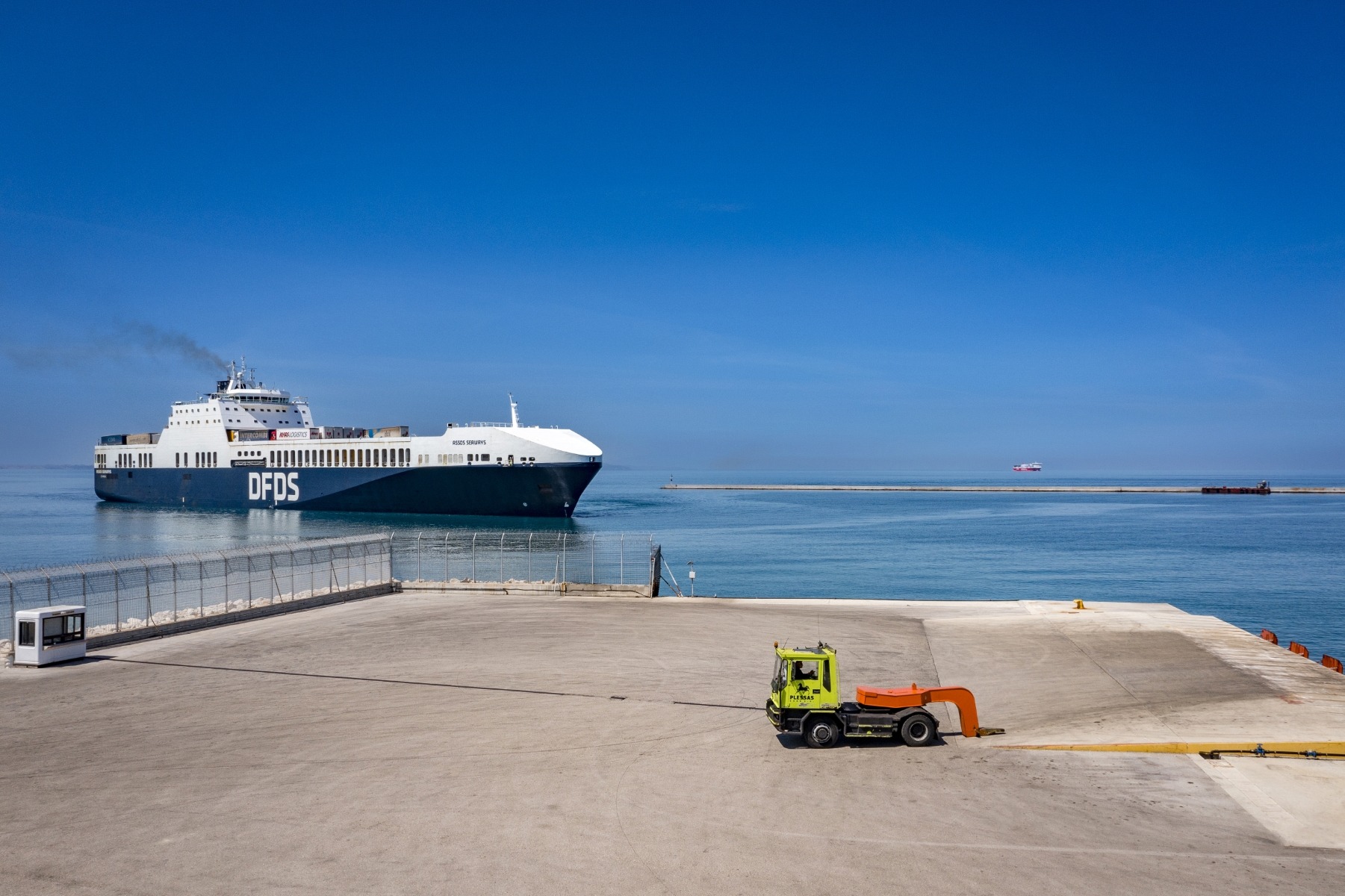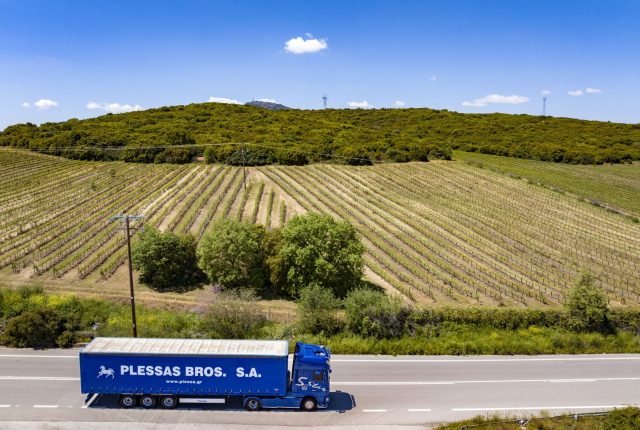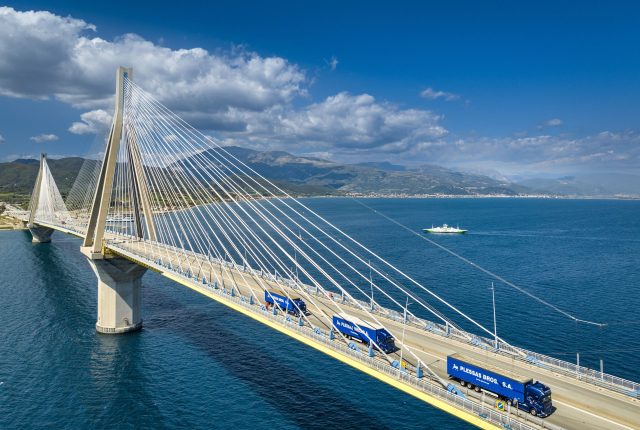
Port-City Relations: Balancing Economic Growth with Environmental and Social Sustainability
Ports are vital to the economic development of cities, serving as gateways for international trade and hubs for economic activity. As a company deeply integrated into the world of logistics and global shipping, Plessas Bros S.A. is keenly aware of the intricate relationship between ports and their host cities. However, this relationship is multifaceted, involving not only economic growth but also pressing concerns about environmental and social sustainability. Striking a balance between these elements has become essential for the long-term viability of port cities, their economies, and the well-being of local communities.

Economic Growth: Ports as Engines of Development
Historically, ports have been powerful engines of economic growth. They attract businesses, generate employment, and facilitate international trade, positioning themselves as critical infrastructure for cities seeking global connectivity. For example, Patras, home to Plessas Bros S.A., has long been a crucial hub for shipping and transportation, connecting Greece to Western Europe and beyond. The presence of a port stimulates the development of ancillary industries like warehousing, transportation, and manufacturing, contributing to a city’s GDP and employment rates.
Modern ports are integral to global supply chains, making them indispensable for businesses like Plessas Bros S.A., which specializes in logistics and freight forwarding. The efficiency of port operations directly impacts business costs, consumer prices, and national economies. A well-functioning port offers a competitive advantage not only to the businesses that use it but also to the entire city, attracting investment and encouraging urban development.
However, this economic dynamism comes with challenges. Increased industrialization, urbanization, and trade activities associated with ports can strain local infrastructure, lead to higher costs of living, and affect the quality of life in urban areas.
Environmental Sustainability: Addressing Ecological Concerns
While ports are vital for economic prosperity, their operations can have significant environmental impacts. Activities such as cargo handling, vessel traffic, and the movement of goods by trucks and trains contribute to air pollution, water contamination, and habitat degradation. The sheer volume of shipping activities, combined with the industrial footprint of port-based businesses, can negatively affect coastal and marine ecosystems, contributing to issues like greenhouse gas emissions, noise pollution, and the destruction of natural habitats.
To address these concerns, ports and port cities are increasingly adopting sustainability measures aimed at reducing their environmental impact. Plessas Bros S.A., with its global reach, recognizes the importance of sustainable logistics practices. Initiatives such as the electrification of port equipment, the adoption of cleaner fuels like liquefied natural gas (LNG), and the integration of renewable energy sources into port operations are gaining traction worldwide. Ports are also investing in advanced technologies such as automated cargo handling systems, which not only improve efficiency but also reduce energy consumption.
Green port initiatives, such as the creation of “zero-emission ports,” are emerging as viable solutions to address the environmental footprint of shipping activities. These efforts not only reduce pollution but also enhance the competitive advantage of ports by aligning with global sustainability goals and regulations.

Social Sustainability: The Impact on Local Communities
Another crucial aspect of the port-city relationship is its impact on the local population. Ports can provide numerous social benefits, including job creation, improved infrastructure, and access to global markets. However, they can also pose challenges to the quality of life for residents, particularly those living in close proximity to port facilities.
Port activities can lead to increased noise, traffic congestion, and industrialization, which may affect the health and well-being of local communities. Furthermore, the rising cost of living in port cities due to economic growth can exacerbate social inequality, leading to tensions between the port’s economic benefits and the needs of local residents.
To promote social sustainability, ports are increasingly working towards creating a harmonious relationship with their host cities. This includes engaging with local communities through public consultations, involving them in decision-making processes, and investing in social infrastructure such as parks, schools, and healthcare facilities. Corporate Social Responsibility (CSR) initiatives, such as those promoted by companies like Plessas Bros S.A., are becoming essential for maintaining a positive social impact. These initiatives aim to ensure that the economic benefits of port activities are distributed equitably and that the local population is not disproportionately affected by the negative externalities of port operations.
The Need for Integrated Port-City Development Plans
Balancing economic growth with environmental and social sustainability requires a holistic approach. Port cities need to develop integrated plans that align port development with urban planning, environmental protection, and social welfare policies. These plans should take into consideration not only the immediate economic benefits of port expansion but also the long-term implications for the city’s ecosystem and its people.
Some cities have adopted smart port strategies, leveraging digital technologies like big data and artificial intelligence to optimize port operations and minimize environmental damage. Others are investing in green infrastructure, such as coastal defenses and natural barriers, to protect urban areas from rising sea levels and extreme weather events associated with climate change.
In addition, international standards and regulations, such as the International Maritime Organization’s (IMO) carbon reduction targets and the European Union’s Green Deal, are playing a critical role in shaping port development policies. Ports that adhere to these standards are likely to benefit from stronger relationships with local governments and communities, as well as from enhanced reputational capital in the global marketplace.
The Role of Plessas Bros S.A. in Shaping Sustainable Port-City Relations
As a key player in the global transport and logistics industry, Plessas Bros S.A. is committed to supporting sustainable port-city relations. By adopting environmentally responsible practices, such as optimizing freight transportation routes and minimizing fuel consumption, the company contributes to reducing the environmental impact of shipping. Additionally, Plessas Bros S.A. engages with local communities in the areas where it operates, ensuring that its business activities align with social and environmental goals.
The company recognizes that the future of port cities depends on sustainable development. By balancing economic growth with ecological and social considerations, Plessas Bros S.A. is actively participating in the creation of port-city ecosystems that are resilient, competitive, and inclusive.
To wrap up
Port cities, like Patras, represent the intersection of global trade, economic development, and local livelihoods. The challenge of balancing economic growth with environmental and social sustainability is complex, requiring collaboration between businesses, governments, and local communities. By embracing innovative practices, green technologies, and social engagement, ports and companies like Plessas Bros S.A. can help ensure that the economic benefits of port activities are sustained while minimizing the negative impacts on the environment and society. The future of port cities depends on this delicate balance, which is essential for long-term prosperity and sustainability.




